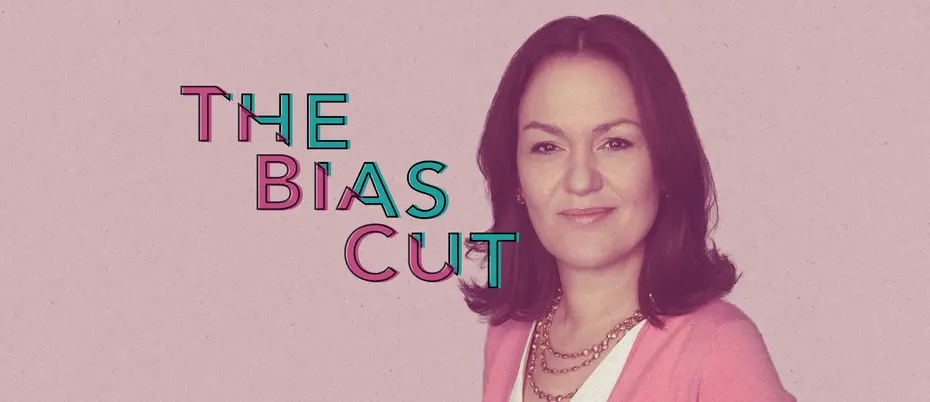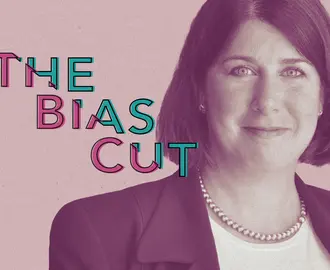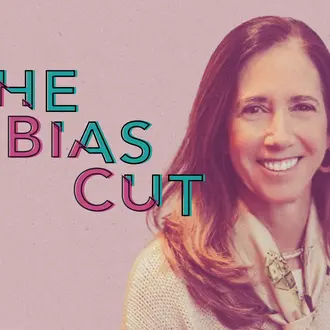The Bias Cut
A former Estée Lauder EVP on the language of power
“I have learned how to position myself so that my voice can be heard.”
A 2023 women’s leadership study from LeanIn.org and McKinsey & Co. found that American women held 40% of corporate management positions, and women continue to fight underrepresentation when it comes to board positions and CEO roles. They also face gender bias, harassment, and opposition to their management styles.
Here’s how one MIT Sloan alumna has pushed back on those statistics and used what she’s learned along the way to help those behind her.
Georgia Garinois-Melenikiotou, SM ’84, independent board director for four public companies in the U.S., Brazil, and Germany. She also serves on the MIT Sloan Americas Executive Board and the advisory board for MIT’s Social and Ethical Responsibilities of Computing and Artificial Intelligence. Previously, Garinois-Melenikiotou was the executive vice president of corporate marketing at Estée Lauder Companies Inc., and held several leadership roles with Johnson & Johnson in the U.S. and in Europe.
Can you give an example of a time you’ve experienced or witnessed gender bias? How did it affect you professionally? What impact did it have on your job?
Thirty years ago I was the chief marketing officer of a Johnson & Johnson acquisition in France and four months pregnant with my daughter. My male boss, the president of the company, left at a very critical moment when the company was at the beginning of a tough turnaround. I was offered the role but with the title of “interim general manager” instead of president and half the salary of my predecessor.
That title implicitly fed gender bias. A young, pregnant Greek woman was not the typical model of a company president in France 30 years ago, when the paternalistic leadership model was the status quo. The title was communicating to my staff and my business partners that I was not quite ready for the job, but I was still given the task to lead the turnaround. Turning around a business is about making tough decisions every day. That requires absolute trust in the leadership team. Earning the trust of all my staff during the first few months in my new role was a second job on top of my regular job.
Eighteen months later, after the turnaround was successfully completed, I was appointed as president. My salary was raised but I was still being underpaid compared to my male peers. It took me another 10 years to close that salary gap. Although women have made so much progress in the various expressions of gender bias, the differences in remuneration are still significant. The status quo needs to change, and women have to learn how to ask for more money.
What is the most difficult lesson you’ve learned in your professional life? In what unexpected ways did you grow from it?
There is no better secret to success than failure. Failure takes you out of your comfort zone. My biggest failures were extremely tough to digest in the short term. But they armed me with a sense of freedom to change things and try new directions that I wouldn’t have considered before. All my failures were the beginning of my critical successes, and through those successes I understood that failure is a lesson rather than a punishment.
One example is the acquisition of a brand made for Johnson & Johnson in France — the pharmacy skincare brand RoC. The state of the business proved to be much tougher than what we believed prior to the acquisition. The brand had not been modernized for years, and the cost structure was too big for the size of the business. That first year we failed to meet any of the acquisition targets, and I was devastated because I was responsible for the brand acquisition.
That tough context forced me to deploy a new strategy: A painful restructuring plan, combined with a transformative repositioning of the brand. After three years the brand was growing throughout Europe. This gave us the self-confidence needed to also acquire Neutrogena and build a very successful beauty business unit around those brands.
What’s one specific way you tend to your well-being, and how do you encourage well-being among your staff?
I operate better when my professional and personal lives are in harmony. I see my job and my family as two extremely important parts of my existence, and one is a continuum of the other. My offices are filled with photos from my personal life. There are flowers from my garden on my desk. When there is a new member of the team, I invite everyone to my home. And when I can, I try to bring my family along on some of my business trips and extend my stay over a weekend.
My thirties were years that I was building both my career and my family, and to manage this, I invested in myself. I used a lot of child care and housekeeping services to raise my children in seven different countries without any help from my family. For almost 10 years all my earnings would go to those services, and this was my highest ROI of all my investments.
What’s one skill or behavior women can adopt to make their career path more successful and more manageable?
Self-confidence and self-promotion are things women struggle with. Women do not believe in their value and their voice when we talk about self-confidence. You decide how much power you give to other people.
I have learned both as a top executive and as a board member how to position myself so that my voice can be heard. I learned the power of breathing and the power of pauses before and after my key points. Self-confidence is in the language of power: I can versus I could, I will versus I would. This is a skill we can teach young women.
If you could snap your fingers and change one thing about workplaces, societal norms, or public policies that would most benefit women in the workforce, what would it be?
Reliable, affordable, and accessible child care — for both women and men.




